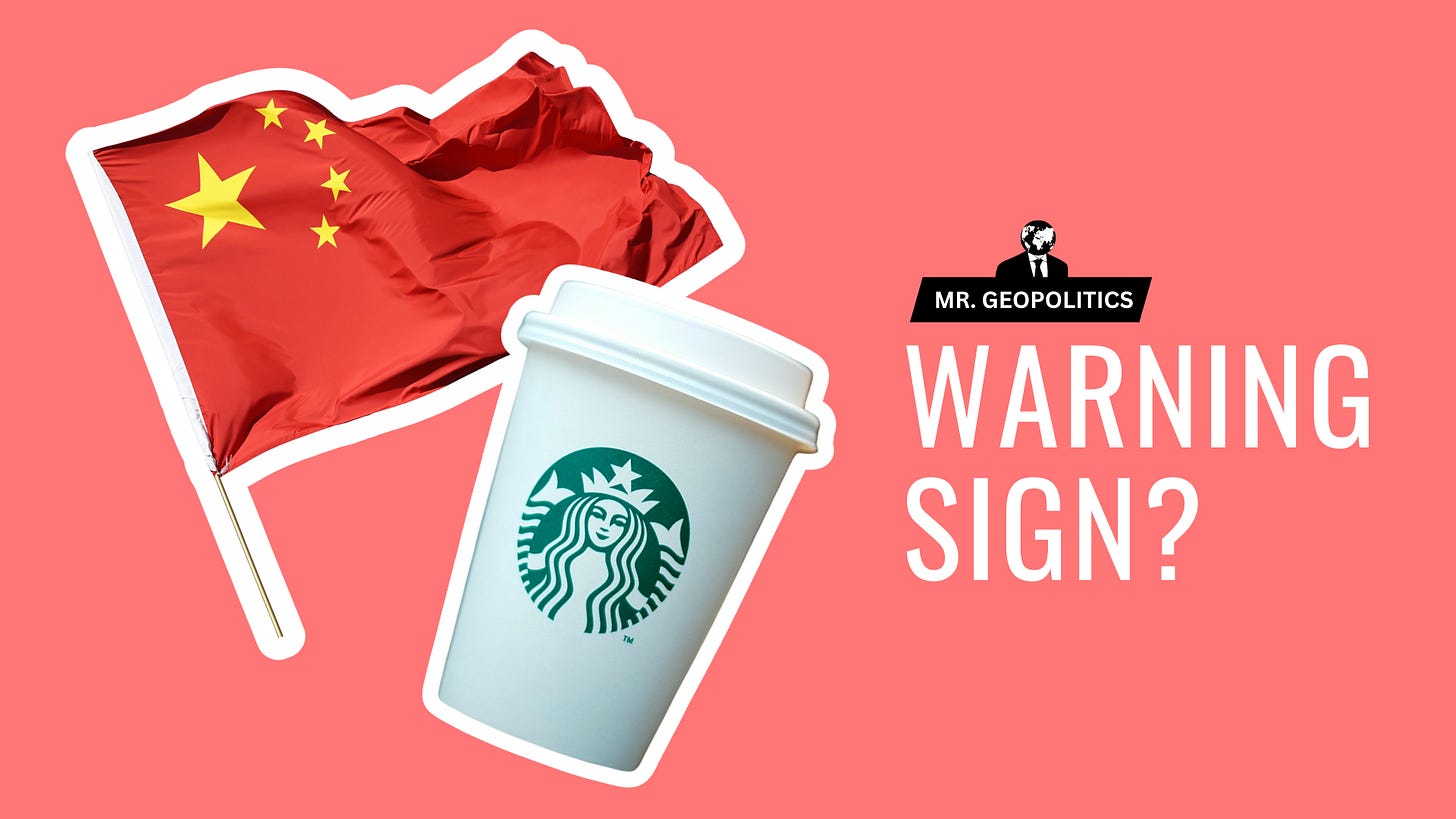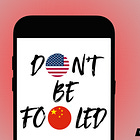Did China Just Force Starbucks Out?
When geopolitics brews faster than coffee
A few years ago, Starbucks made a stunning announcement. It was opening a new store in China every 15 hours. Today, the Chinese market is the second largest for the US coffee chain, with more than 8,000 stores, close to half the stores in the US, over 17,000.
Yet, Starbucks is selling a 60% stake in its China operations for $4 billion to a Chinese private equity firm based in Hong Kong, with “connections” to the Chinese state (one of its founders, Alvin Jiang, is the grandson of Jiang Zemin, the former President of China).
When it comes to these kinds of deals, the official story is always sluggish sales or challenging competition. But is there more than meets the eye, including geopolitics?
Preempting Geopolitics
When Starbucks unveiled its rapid growth in China, with a new store every day, the first thought that entered my mind was “over exposure.” The US company was spreading through the Chinese market at a moment when US-China relations were nosediving. Today, the situation between the world’s two largest economies is far worse: there is no truce, there is no long-term deal or security, and the entire business community is effectively on its own.
As challenges with navigating the war in Gaza persist, which cut Starbucks sales in the past, the situation with China presents are far bigger threat to the company’s future. By selling a majority stake, perhaps the first step towards a formal exit from the Chinese market, Starbucks may be hedging. It may be watching what is taking place from Nvidia to Nexperia, and believes that it is only a matter of time before China punishes America through coffee (i.e., hitting Starbucks).
Geopolitics might not have been the overbearing reason why Starbucks is giving up control to a Chinese firm. But by taking this step, the company is far more “secure” as the US-China fight worsens.
Global China
Many other organizations, thinking about their footprint in China, should be carefully watching Starbucks. They should be interpreting the sale as less about dollars and cents and more about long-term resilience.
However, leaving China does not exempt Starbucks from geopolitics.
The “Chinese competition” is expanding beyond the home market and into the West. The company’s main rival in China, Luckin Coffee, has started to open stores in the US, and Europe could be next. Adding to this, in September, the Chinese commerce minister Wang Wentao met with leaders of 10 Chinese firms in New York, and effectively directed them to stay away from “relentless competition,” meaning undercutting their competitors in such a way that gives them more market share.
This is a shocking state move. Usually, governments cheer on their businesses to take on rivals and dominate markets. Here, however, China was telling its businesses to stop being so successful, like through extreme promotions, as it could draw in the US spotlight.
Starbucks is in the same position as Western automakers. They must face China in their home court. And even thousands of miles away, the control of the Chinese state is ever-present.
Washington Watches
The new deal comes as the US-China dance enters a dangerous moment. Already, there are clear differences emerging in the US and Chinese statements from the Trump-Xi meeting in South Korea. The US is saying China has agreed to lift all limits on rare earth and chip curbs. China, on the other hand, is saying it only agreed to lift certain limits. Both sides are teetering on the brink of another fight. There is no clarity as the geopolitical noise increases.
Starbucks may be the first of many multinationals making a painful decision to preempt geopolitics before it strikes.
Observing in the background is the US government. It should also be watching what Starbucks is doing with close attention to detail. If competition in China is to blame for Starbucks selling a 60% stake, it is not competition without involvement from the Chinese state. The US is silently watching as its companies are being “ejected” from the Chinese market, which likely connects with Beijing’s broader strategy of extreme self-reliance.
The story of Starbucks in China might have started with Americanization and coffee. But it is ending or evolving with geopolitics, global competition, and state intervention. Even Morning Joe is becoming red.
-ABISHUR PRAKASH AKA. MR. GEOPOLITICS
Mr. Geopolitics is the property of Abishur Prakash/The Geopolitical Business, Inc., and is protected under Canadian Copyright Law. This includes, but is not limited to: ideas, perspectives, expressions, concepts, etc. Any use of the insights, including sharing or interpretation, partly or wholly, requires explicit written permission.







